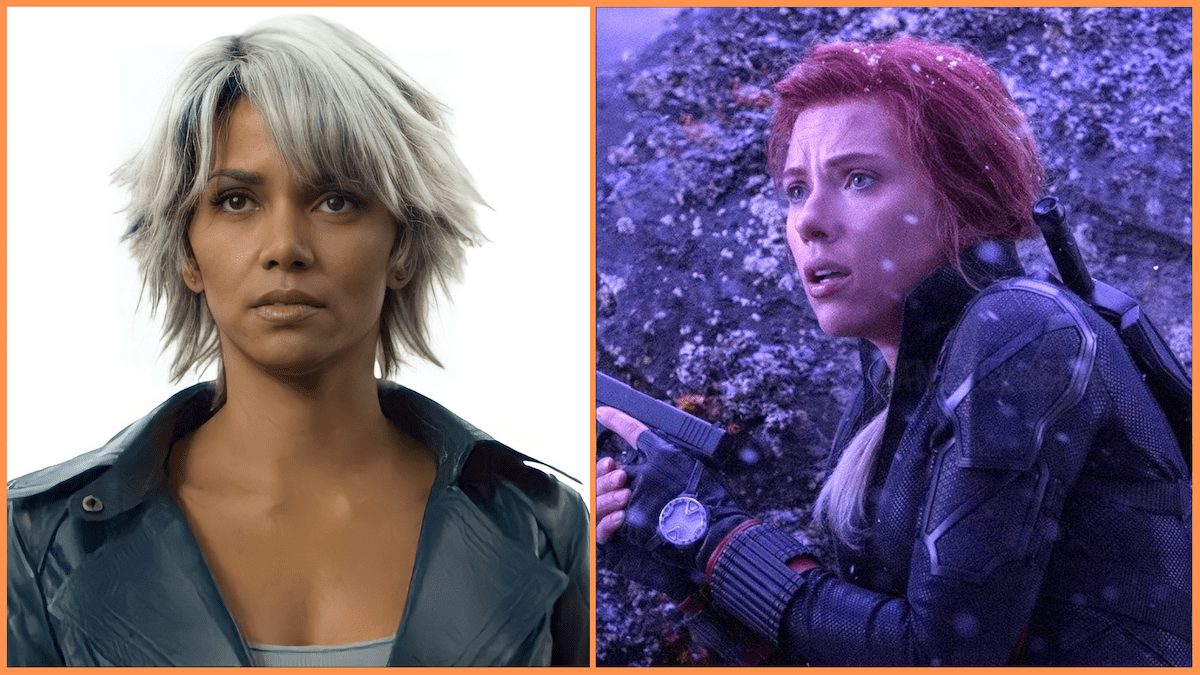On this day, Oct. 17, 2023, Natasha Romanoff, aka Black Widow, sacrificed herself on the planet Vormir so that the Avengers could get the Soul Stone, reverse Thanos’ snap, and kill the Mad Titan once and for all. Instead of being recognized for her selflessness — without which the Avengers plan would never have worked — her death was sidelined in favor of honoring Tony Stark’s.
It was not the first, nor the last time a woman superhero was treated unfairly by Marvel. The superhero franchise has an unsavory past of pulling the rug out from under its female characters, and the actresses who embody them. As former X-Men: The Last Stand director Matthew Vaughn said at the 2023 New York Comic Con, the reason he famously backed out of the directorial seat last minute, was that the studio executives had concocted a plan to lure Halle Berry into signing on as Storm for a third time by drafting a fake script, and then “throw[ing] it in the bin” once she came on board.
The Russo Brothers, on the other hand, claimed Black Widow didn’t get a funeral in Endgame because “Natasha [had] another movie coming out,” but wouldn’t it have been just as easy to include her emblem of dual batons beside Tony’s arc reactor on the memorial bed of flowers drifting across the lake? Some visual token of tribute?
Indeed, the farther you dig into Marvel’s past, the harder it becomes to ignore a disproportionately doomstruck female fate; strong woman characters die off, while men continue to keep the franchise afloat. The historic trail of dead female baddies goes back a ways — the demise of Queen Ramonda (Angela Bassett) in Black Panther: Wakanda Forever is only the most recent marker — while the men of Marvel soldier on, mostly intact.
In addition to Scarlet Johansson’s Black Widow, consider Ajak (Salma Hayek), Gamora (Zoe Saldana), Maria Hill (Cobie Smulders), Aunt May (Marisa Tomei), Peggy Carter (Hayley Atwell), Wanda/Scarlet Witch (Elizabeth Olsen), Dr. Jane Foster (Natalie Portman), and even Jean Grey (Famke Janssen) — these are just a handful of female leads who’ve died too soon. And guess what most of them have in common? They sacrificed themselves, either to save someone specific, or for the greater good.
It’s true that that a past version of Gamora came back, and we don’t even know for sure whether Elizbeth Olsen’s Wanda is dead for good, but it’s hard not to discern the pattern. Sacrifice is one of the most common female storytelling tropes, and Marvel continues to fall prey to it. That’s not to say there’s anything wrong with sacrifice, per se, but when it becomes every female character’s defining quality, it perpetuates the notion that women are only here to lay their lives down for the men beside them.
The limited mindset that frames women in media within a two-dimensional construct is not confined solely to fiction, of course. Let’s not forget Scarlett Johansson was herself villainized, thrown under the bus, and publicly lambasted by Disney for calling the company out when it decided her character’s solo film, Black Widow, wasn’t worth the same level of respect as her male colleagues’ solo films.
Captain Marvel was the franchise’s first female-led superhero film, and will become the first to receive a sequel with The Marvels on Nov. 10. Marvel has an opportunity to do right by Carol Danvers, Ms. Marvel, and Captain Rambeau. Now more than ever, the studio needs to course correct. There’s no better time than the anniversary of Natasha Romanoff’s death to call for this most basic of justices.
